It’s ‘aggressive’ and can spread quickly so it’s important to keep an eye out for a key symptom
A doctor has explained the common symptoms of a cancer that has rising cases in young people.
While Cancer Research UK points out in its statistics that Hodgkin lymphoma is not among the 20 most common cancers, incidence rates are projected to rise by 13 percent between 2023 – 2025 and 2038 – 2040.
It can develop at any age but it mostly affects people between 20 and 40 years of age and those over 75, with a 2022 study noting that its increase has been especially noticed in the younger population – though it further states that the reason is still unknown.
The cancer develops in the lymphatic system which is part of your immune system and is a network of vessels and glands spread throughout your body – with one sign sometimes appearing when you drink alcohol.
Dr Ahmed is a GP based in the UK and shared a video to TikTok urging people to not ignore ‘if you have any symptoms’.
.jpg)
It’s commonly spotted in the neck, armpits and groin. (Getty Stock)
“So, in Hodgkin lymphoma, a certain type of cell called B lymphocyte grow in number abnormally,” he explains. “They cluster together in certain parts of your body, most often your armpits, neck and groin.”
And so, Dr A says the ‘most common symptom’ is therefore a lymph node ‘that’s inflamed and enlarged that won’t go away again’.
He points out that you want to keep an eye out for these lumps particularly in your neck, armpits or groin.
“If you’ve got one of these or a lymph node that’s not going away after four to six weeks, you must get it checked out,” the doctor adds.
He also includes other symptoms such as ‘a persistent fever, persistent cough or breathlessness, a high temperature and weight loss’.
While diagnosis ‘can be quite quick’ the NHS explain the only way to do so is by carrying out a biopsy.

Hodgkin lymphoma typically spreads quickly. (Getty Stock)
This is a minor surgical procedure where they will remove a sample of affected lymph node tissue to be studied in a lab.
Dr A advises that the cause of Hodgkin lymphoma isn’t exactly known, but there are risk factors including: “If you’ve got a weakened immune system, if you’ve previously had glandular fever, have a family history.”
The NHS also adds that your risk of developing it is increased if you take immunosuppressant medicine.
“Treatment can involve radiotherapy and chemotherapy and prognosis is fantastic,” Ahmed says.
And while it is a ‘relatively aggressive cancer’ and can spread through the body quickly, it is one of the most easily treated types of cancer.
Overall, around eight out of 10 patients live at least five years and most of them will be cured.
The doctor adds this ‘is why it’s important you get diagnosed early and see a doctor if you have any risk factors or symptoms’.Featured Image Credit: Getty stock/TikTok/dra_says

Jess Battison
Advert
Advert
Advert
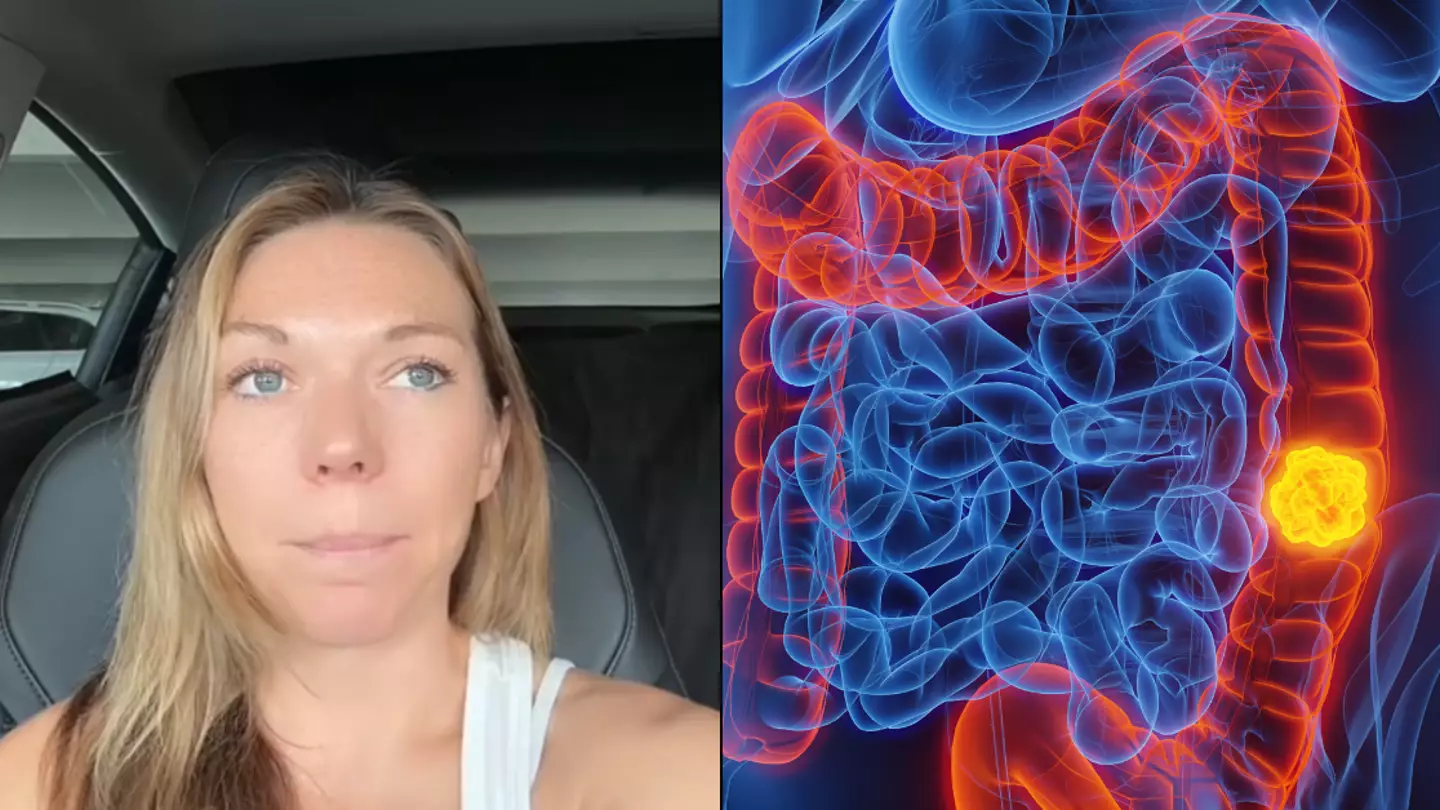
Published 16:25 13 Dec 2024 GMT
Woman diagnosed with hard-to-detect cancer shares key symptoms she had as cases soar among young people
Diagnosed with stage three cancer in her 30s, she initially brushed off symptoms

A woman diagnosed with a hard-to-detect cancer shared the key symptoms she experienced as cases soar among young people.
Earlier this year, figures found that bowel cancer (often referred to as colon or rectal cancer) was rising in those under 50 years old.
This type of the disease is when it’s found anywhere in the large bowel which includes the colon and rectum.
While it is one of the most common types of cancer in the UK, the symptoms can often be dismissed by patients as something else – but the NHS encourage early bowel cancer screenings as it may mean it’s easier to treat.
And only in her 30s, TikToker Bri Mahon found she had stage 3 colorectal cancer.
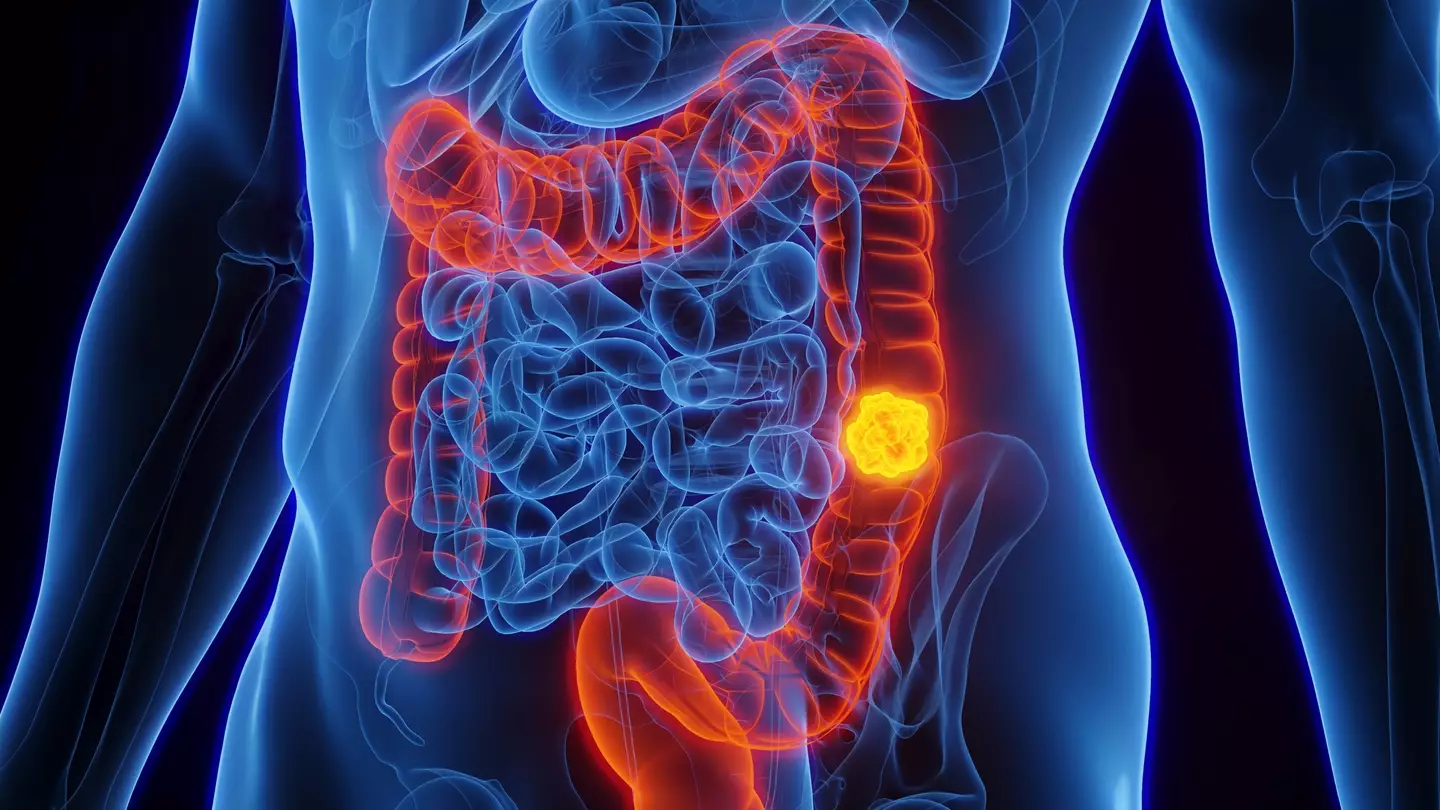
Bowel cancer is said to be one of the hardest cancer to detect (Getty Images)
She shared a video to the social media platform to share all of her symptoms that led to her ‘getting checked out and getting a colonoscopy’.
Bri says she had ‘just gut issues in general’ for some time like bloating, adding that the signs ‘would point more towards Irritable Bowel Syndrome (IBS)’.
But when she cut out the likes of gluten and dairy and took various allergy and blood tests, ‘nothing concerning came up’.
Feeling as though her stomach was ‘irritated and bloated a lot’, she then noticed a ‘change in her anxiety and fatigue’.
Around two years ago, she had to ‘step back’ from the work she was doing and thinks it’s because her body ‘was really, really, really tired’.
.jpg)
The woman brushed off her symptoms. (Getty Stock)
Then after giving birth to her twins premature, she noticed blood in her stool shortly after, passing it off as ‘haemorrhoids from pregnancy’.
“My IBS symptoms were flaring up, and I just kind of thought that was it,” Bri added.
With her babies in the NICU, she was stressed out and tired anyway so justified any fatigue and stomach problems as being down to that.
“But it’s when I found and started to see more regular blood in my stool. I got pretty concerned as kind of like red blood,” she explained.
“And then I really got concerned when the blood turned a lot darker, and my urgency to go to the bathroom was kind of like out of control, and I would either be insanely constipated or I’d be going to the bathroom and just dark blood would be coming out.”
Bri says this only happened for a few months and it led to her calling her doctor.
At first, they thought it could be an autoimmune disease, but following a colonoscopy and biopsies, they found it was stage three cancer.
To the list of bowel cancer symptoms, the NHS include blood in your poo, bleeding from your bottom and feeling very tired for no reason.
If your poo is black or dark red or you have bloody diarrhoea, you should ask for an urgent GP appointment or get help from NHS 111.
If you’re bleeding non-stop from your bottom or there’s a lot of blood, for example, the toilet water turns red or you see large blood clots, then go to A&E or call 999.Featured Image Credit: brimahon / TikTok / Getty Images Stock
Topics: Cancer, Health, NHS, TikTok

Jess Battison
Advert
Advert
Advert
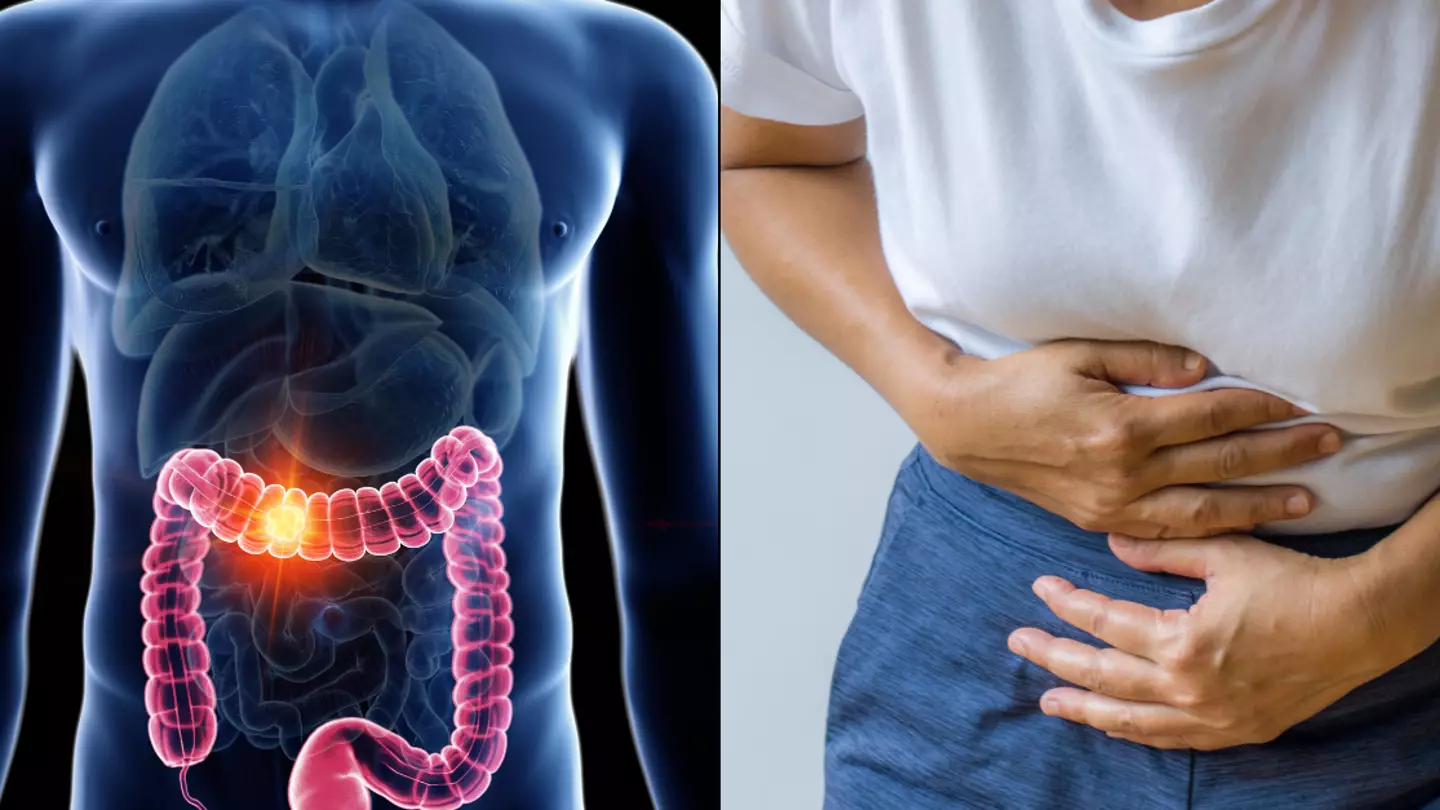
Published 10:35 17 Dec 2024 GMT
Doctors issue warning of three new factors driving certain cancer type as cases skyrocket in young people
New research has revealed the possible cause of the surge in cases

Doctors have issued a warning to young people about three new factors that seem to be connected to a certain type of cancer that has seen cases skyrocket.
New research has pinpointed these factors which could be to blame for the global colon cancer epidemic among young people, as diagnoses continue to rise.
Colorectal cancers are increasing in young Americans, with diagnoses expected to rise by 90 percent by 2030 in those in their 20s and 30s.

Colorectal cancers are on the rise amongst young people (Getty Stock Image)
While bad diets and being overweight have been blamed, this doesn’t explain the surge in cases among those who are seemingly fit and healthy.
Now, a new review of over 160 studies has suggested that pesticides in food, toxins in drinking water and air pollution could potentially be the cause.
Yes, chemicals in food, air and water could potentially be to blame for the surge in cases – especially in America.
Research showed that this ‘complex interplay’ of factors changes bacteria in the gut, which consequently leads to chronic inflammation. This then leads to healthy cells being killed off and cancerous cells to grow.
It was also suggested that this increase in early-onset colorectal cancer, known as EOCRC, has long been i the making due to an increased exposure to pollutants, which can be traced back to 1950.

Chemicals in food, air and water could potentially be to blame for the surge in cases, according to recent research (Getty Stock Image)
In the journal Heliyon, researchers wrote: “Consequently, there is a pressing need for enhanced environmental policies aimed at minimizing exposure to pollutants, safeguarding public health, and mitigating the burden of EOCRC.”
The team, from Sultan Qaboos University in Oman, also said that gastrointestinal health is dependent on gut microbiome – a network of bacteria which regulates the digestive and immune systems.
A lifetime of exposure to things such as foods, antibiotics and chemicals can alter this system, leaving it in an ‘unstable state’ with dangerous bacteria overpowering healthy bacteria.
Researchers also noted the consumption of water that has been contaminated with heavy metals like lead and arsenic – the EPA has estimated that 9 million lead pipes are still in use across the US.
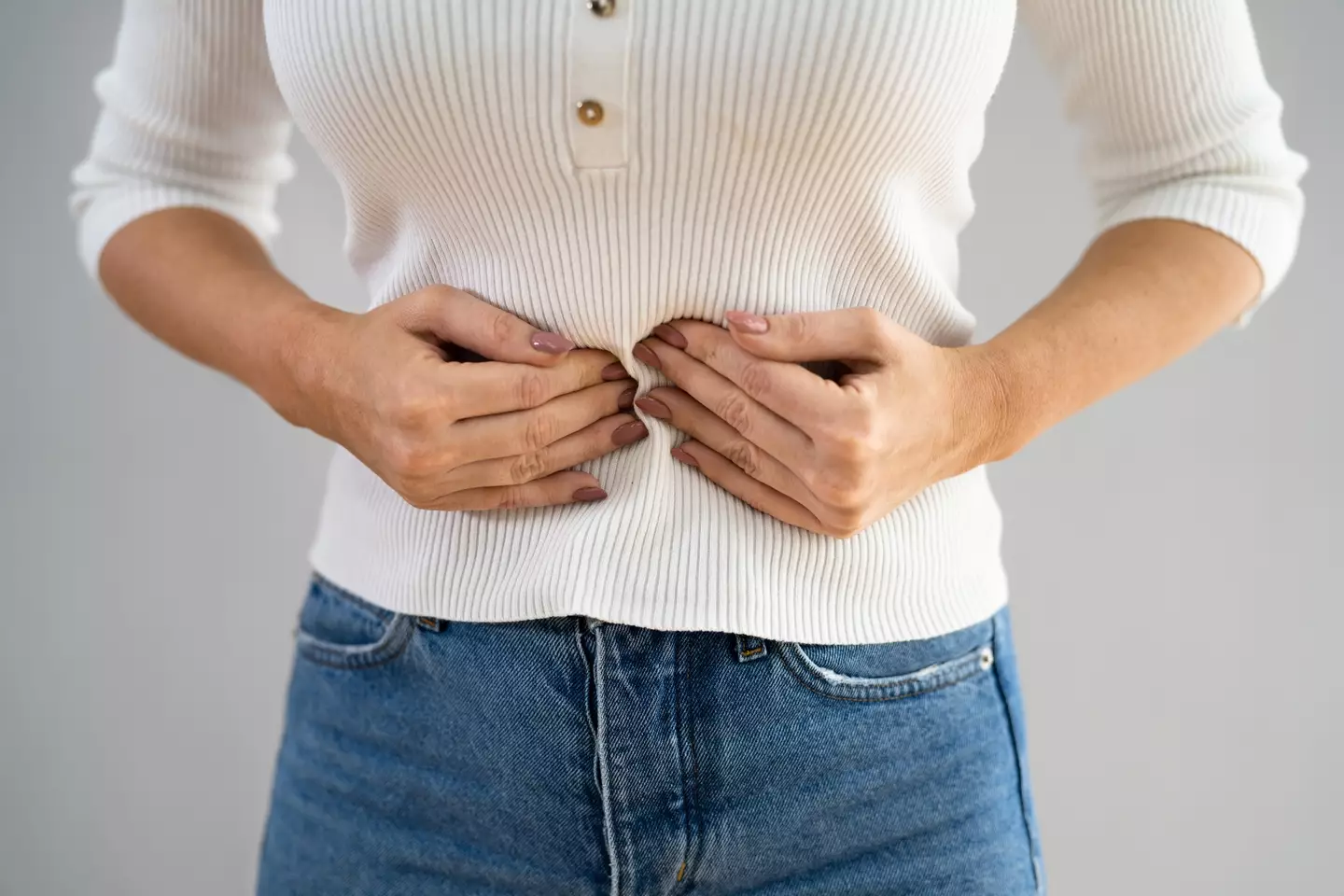
Environmental factors could be causing cancer in fit and healthy people (Getty Stock Image)
In a bid to gain an insight into the rising cases, the researchers also looked as environmental exposures in people born after 1950.
They highlighted a group of microscopic particles which are so small the nose and lungs cannot filter them out, known as PM2.5 or fine particulate matter.
These particles are emitted directly into the air from fossil fuels burned from factories, as well as gasoline-powered stoves and cars, and can easily travel to the bloodstream, leading to inflammation.
Researchers claimed PM2.5 triggers inflammation in the colon, which has been shown to cause the development of cancer cells and impact the immune system’s ability to fight them off.
If you’ve been affected by any of these issues and want to speak to someone in confidence, contact Macmillan’s Cancer Support Line on 0808 808 00 00, 8am–8pm seven days a week.Featured Image Credit: Getty Stock Images

Danni King
Advert
Advert
Advert
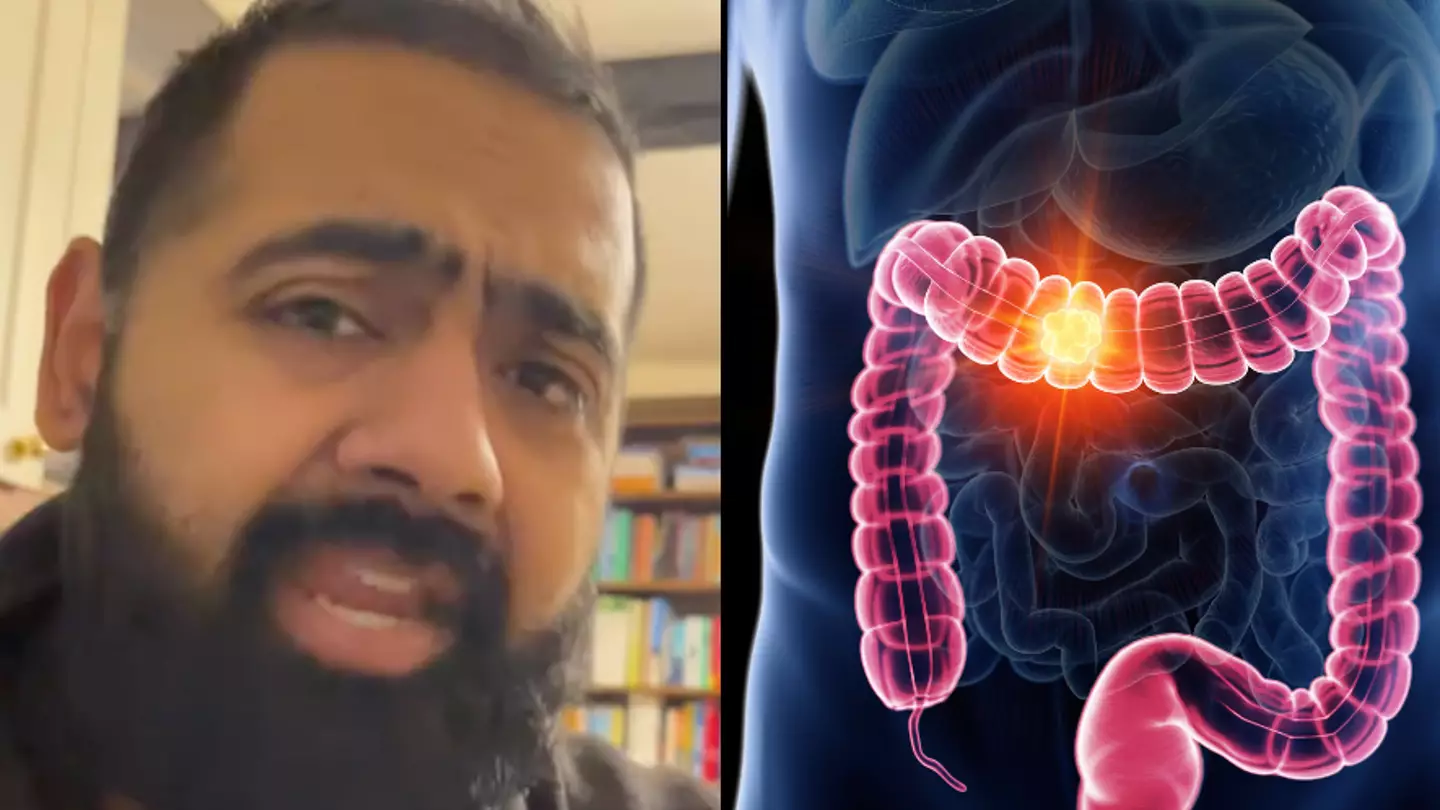
Updated 08:41 20 Dec 2024 GMTPublished 08:29 20 Dec 2024 GMT
Surgeon says eating one food can decrease risk of hard-to-detect cancer as cases rise in young people
Dr Karan Rajan revealed what items we should be picking up during our weekly shop which can boost our health

Since we were all delivered a stark warning about a spike in the number cases of a hard-to-detect cancer, a lot of us have been taking stock of our health.
Maybe you’ve decided to get a bit more exercise in ahead of the New Year, are fine tuning your sleeping schedule or overhauling your diet.
And if it’s the latter, you ought to listen to Dr Karan Rajan’s advice about what you should be fuelling your body with.
They don’t say you are what you eat for nothing, you know.
Biohacker explains strict diet
Credit: YouTube/Bryan Johnson
0 seconds of 1 minute, 10 secondsVolume 90%
The social media medic, who is an NHS Surgeon and a lecturer at Sunderland University, shared a TikTok explaining how you can improve your gut health.
Maintaining a steady environment down there can help reduce your risk of bowel cancer (often referred to as colon or rectal cancer), which is currently on the rise.
Earlier this year, shocking figures from a study conducted by Lancet revealed that cases of it had increased starkly in those who are under 50 years old.
This type of the disease is when it’s found anywhere in the large bowel, which includes the colon and rectum.
While it is one of the most common types of cancer in the UK, the symptoms can often be dismissed by patients as something else – but the NHS encourage early bowel cancer screenings as it may mean it’s easier to treat.

Bowel cancer cases are drastically on the rise, new research found (Getty Stock Image)
Researchers from the American Cancer Society, who also led the study, explained that our diet in the modern world could be the reason for the spike in cases.
The experts said that companies who make junk food had broadened their horizons and had began selling products in poorer countries, which then expands the ultra-processed-food diet above traditional meals.
The study found that the ‘steepest inclines’ in early cancer cases were noted in Chile (4%), New Zealand (under 4%), Puerto Rico (3.8%) and England (3.6%).
So, what you eat is very important – and experts have already been warning people not to overindulge in certain stuff.
But now, Dr Rajan has revealed what things we can eat to boost our gut health and dually reduce the risk of bowel cancer.
In a TikTok video, he explained that kiwi is a great fruit for this purpose, as it is ‘has been shown in research studies to be as effective as psyllium, husk and prunes to improve the symptoms of bloating and constipation’.
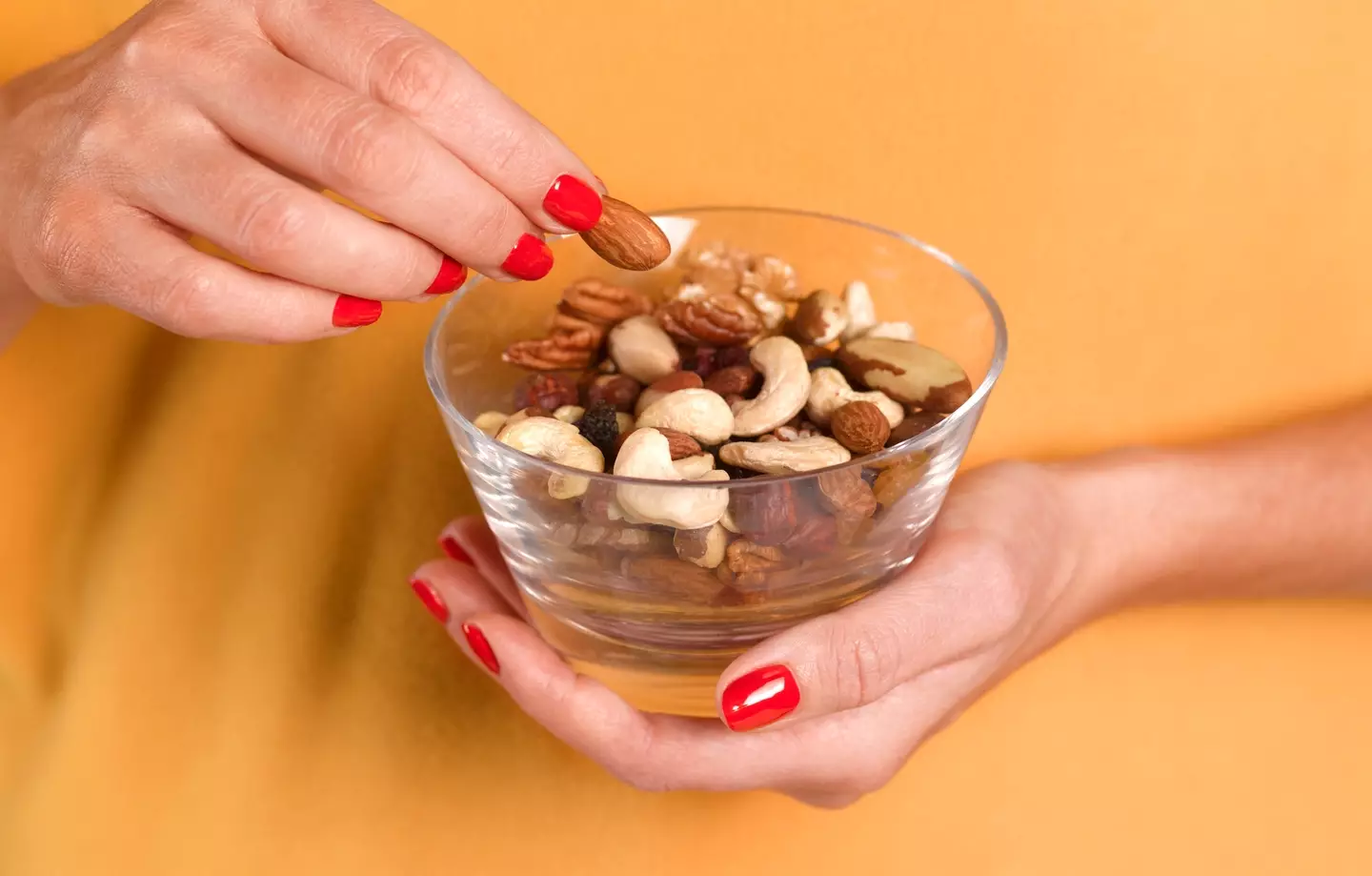
Dr Karan Rajan revealed what foods we can eat to improve our gut health (Getty Stock Image)
“Kiwi is particularly rich in soluble fibre, which promotes softer stools and increases stool frequency without the associated side effects of some laxatives,” he said.
Coffee came next, with Dr Rajan telling his followers that studies have shown it reduces the risk of fatty liver disease, as well as the development of liver cirrhosis and chronic liver disease.
He said that it contains a ‘double whammy of soluble fibres and polyphenols’, and that the latter act as prebiotics which feed your gut good bacteria.
The NHS medic also urged people to try and incorporate yoghurt into their diets, saying it is a product which is ‘loved by every GI, surgeon, doctor, or dietitian’.
Dr Rajan said he tries to eat it every day as the benefits are so good – while he also chows down on mixed nuts for the same reason.
He said that studies show that eating the likes of almonds, walnuts, and pistachios can do wonders for your gut health.
“Having a mixture of nuts give you a diverse range of prebiotic fibres, which promote microbiodiversity in your gut,” the TikTok star said.
“There are studies suggesting that regular nut consumption – around 20 to 30 grams a day – is associated with a reduction in corrector cancer risk, possibly by reducing inflammation and improving micronial biodiversity.”
So if the supermarket shelves are bare on the nut aisle, blame Dr Karan.Featured Image Credit: TikTok/Dr Karan Raj/Getty Stock Images
Topics: Health, Food And Drink, TikTok, Cancer

Olivia Burke
Advert
Advert
Advert

Published 17:46 12 Dec 2024 GMT
Doctor issues cancer warning to everyone who has common cooking ingredient in their kitchen
The findings have been published and it’s not good reading

Scientists have flagged a serious link between cancer and a common cooking item that almost every kitchen has.
It’s no secret that you are putting yourself at risk of becoming unhealthy if you eat a bad diet. Too much of anything, from salt to fat and sugar, is enough to cause damage to your physical wellbeing in some way or another.
But the damage may be being done in a way that was unknown until now. And it is all to do with new research that has been funded by the taxpayer, with the findings enough to make many people rethink what they eat and how often they eat it.
Doctor spots woman’s cancer on TV show
ABC
0 seconds of 3 minutes, 56 secondsVolume 90%
New research finds cancer link
The research was published in scientific journal Gut on Tuesday this week (10 December), and points to evidence of a link between a specific form of cancer and a common cooking additive.
The findings found that there was a causal link between cooking oils – that many of us will use when cooking vegetables or meat on the stove – and colon cancer.
In the United States, colorectal cancer is the second leading cause of cancer-related deaths.
The particular oils that are putting you at risk are seed oils, according to the research conducted by personnel from the University of South Florida and Tampa General Hospital Cancer Institute.
This is oils such as sunflower, corn, canola, and grapeseed.
On top of this, the link was more widely found between something known as inflammation-causing fatty molecules, that you will find loads in takeaways and ultra-processed foods, such as pre-packaged supermarket ready meals.
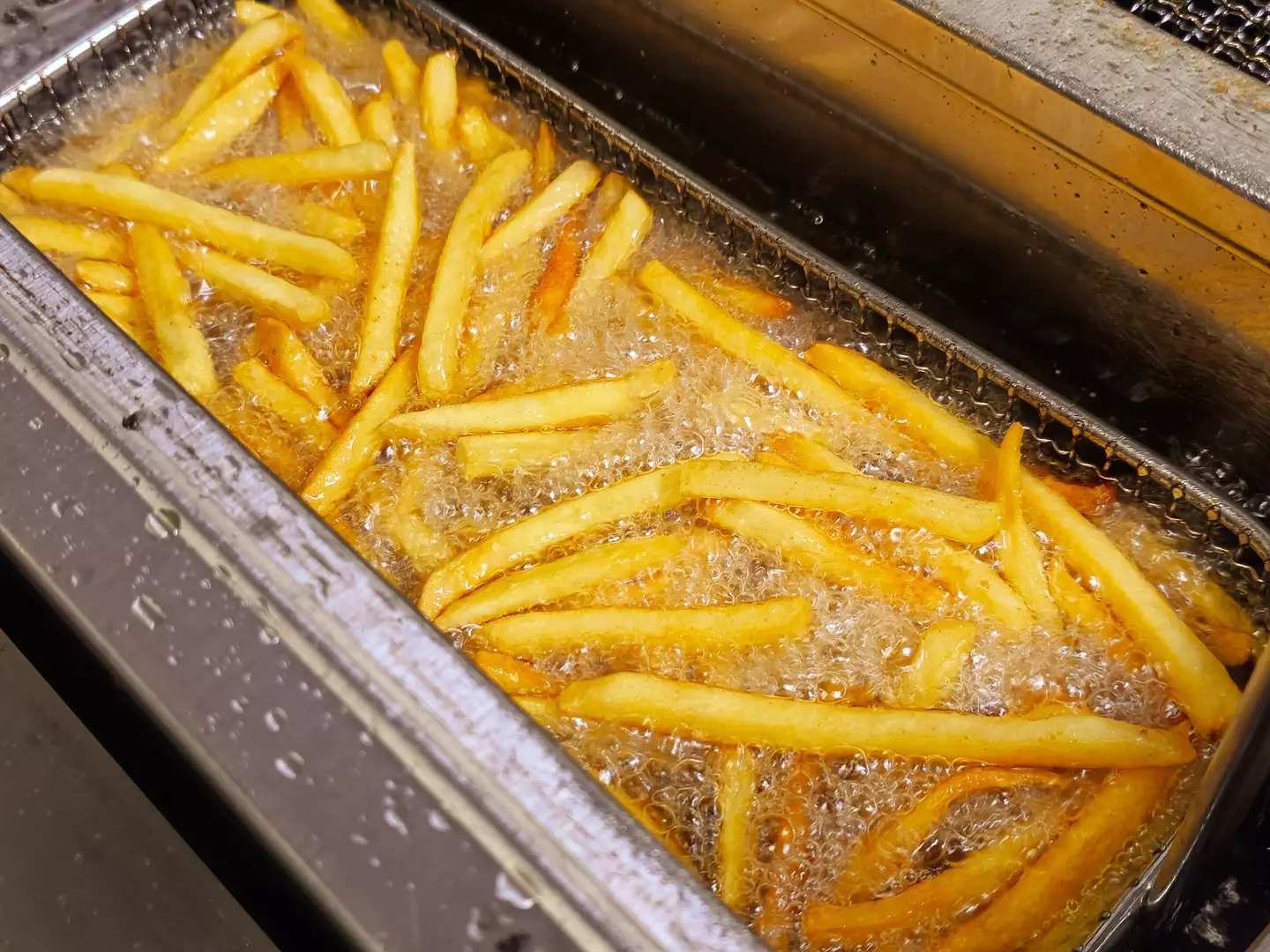
It’s no surprise that this kind of food is bad for us (Getty Stock Images)
What do the experts say?
Timothy Yeatman, co-author of the paper and professor of surgery at the University of South Florida, issued a warning in the research to those who consume these foods on a regular basis.
“We now see this inflammation in the colon tumours themselves, and cancer is like a chronic wound that won’t heal,” Yeatman said.
“If your body is living off . . . ultra-processed foods, its ability to heal that wound decreases due to the inflammation and suppression of the immune system that ultimately allows the cancer to grow.”
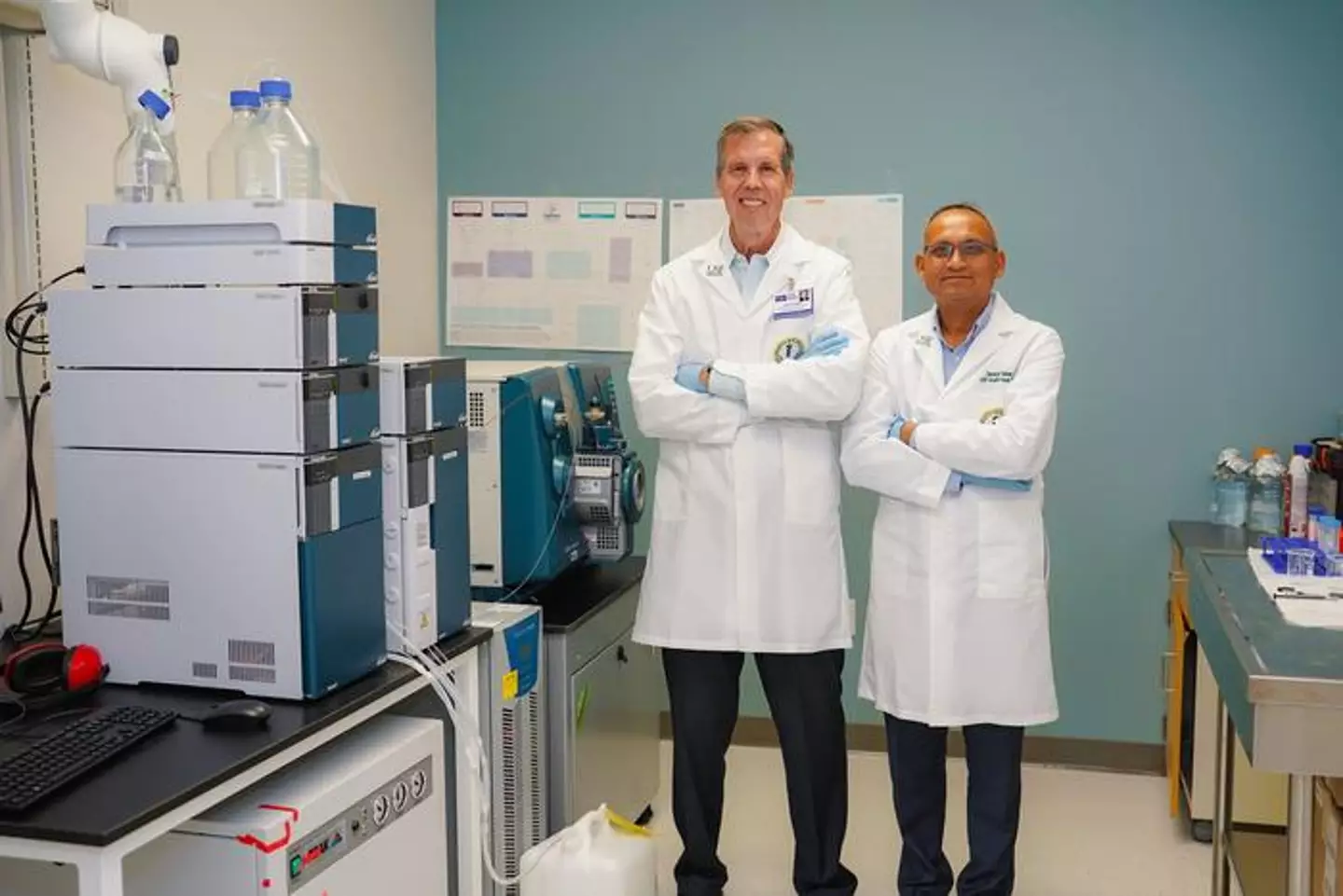
Ganesh Halade and Timothy Yeatman (USF)
For Yeatman, the research serves as evidence enough to re-evaluate the Western diet and our attitudes to food, both in the home and when eating out.
“Our bodies are designed to actively resolve inflammation through bioactive lipid compounds derived from the healthy fats, like avocados, that we consume,” said Ganesh Halade, associate professor in the USF Health Heart Institute and a member of the Cancer Biology Program at TGH Cancer Institute.
“Bioactive lipids are very small molecules derived from the foods that we eat and, if the molecules are coming from processed food products, they directly imbalance the immune system and drive chronic inflammation.”